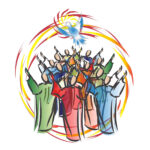Sacré bleu! Celebrate the toppling of the long-standing French monarchy, symbolized by the storming of a fortress and political prison in Paris, on Bastille Day on July 14. Nearly a dozen countries around the world have organized events and parties to commemorate the day — do you know how you’re going to celebrate Bastille Day?
When is Bastille Day 2024?
The annual international celebration of French freedom from tyranny occurs on Bastille Day on July 14.
History of Bastille Day
In France, Bastille Day is commonly known as ‘Fête Nationale,’ or the National Celebration. However, the English-speaking world has taken to calling it Bastille Day to honor the moment in 1789 when a mob of French revolutionaries charged into Paris’ Bastille, a major point in the French Revolution. The first celebration can be traced back to July 14, 1790, exactly one year after the Bastille fell. Since then, it has continued to grow, and large parties are held all over the world.
Bastille Day marks the anniversary of the fall of the Bastille in Paris and, later, the monarchy on July 14, 1789. Originally constructed as a medieval fortress, the Bastille was eventually used as a state prison. Prisoners who were directly sent there under orders of the king would get no trial or right of appeal, at times including political prisoners who spoke against the rules and laws set by the ruling king. Detained citizens awaiting trial were also held at the Bastille. Despite plans to demolish the building in the late 18th century, the Bastille had come to represent the Bourbon monarchy and the harsh acts carried out by them.
During the unrest of 1789, on July 14, a mob approached the Bastille to demand the arms and ammunition stored there, and, when the forces guarding the structure resisted, the attackers captured the prison and released the seven prisoners held there. The taking of the Bastille signaled the beginning of the French Revolution, and it thus became a symbol of the end of the ancient monarchical régime.
The holiday is known as ‘Fête Nationale’ in France, and officially became a holiday in 1880. Right from the beginning, military parades, fireworks, speeches, and public displays were a part of the celebrations, reveling in the downfall of the stringent monarchical rule. The slogan “Vive le 14 juillet!” (“Long live the 14th of July!”) has continued to be associated with the day. Former French colonies and countries with friendly relations with France also started observing the holiday. French Polynesia, in particular, adopted the holiday into its own culture, with dancing, singing, and entertainment performances held throughout the month of July.
Bastille Day timeline
French revolutionaries storm the Bastille, in a victory both strategic and symbolic.
Fête de la Fédération takes place on the one year anniversary of the storming of the Bastille to celebrate French unity.
Bastille Day is voted to be a yearly national holiday in France.
The first Bastille Day Ball takes place and becomes an annual tradition from this year onwards.
Traditions of the Day
Bastille Day is more than just a historical holiday, it is a celebration of French culture. Large-scale events take place all over the country and some other parts of the world, with meals, parties, and grand fireworks.
The annual military parade on the morning of July 14 is a patriotic display of French solidarity. The national flag of France is displayed everywhere and, while candy is not thrown during the parade, it does, in some aspects, resemble the American Fourth of July parades.
It wouldn’t be a French holiday without a completely lavish, delicious meal. In some areas of France, it is a tradition to have a picnic on Bastille Day, while in other regions, families enjoy an elaborate meal at their homes in the middle of the day. If not a picnic, these meals are enjoyed in gardens or backyards to enjoy the pleasant weather. The menu is generally lighter, with less cream and butter, and more fruits and vegetables.
Bastille Day By the Numbers
2 – the number of towers in the original construction of the Bastille.
75 – the height in feet of the original two towers.
8 – the number of towers after the building was turned into a rectangular fortress.
55 – the number of captives held at any given time by Cardinal Richelieu in the 17th century.
7 – the number of prisoners freed after the storming of the Bastille.
5 – the number of years aristocrat Marquis de Sade was jailed in the Bastille.
60 francs – the amount of money donated to families of the revolutionaries by Thomas Jefferson.
91 – the number of years it took for Bastille Day to become a national holiday.
3,501 – the number of soldiers in attendance at the 2015 Bastille Day military parade.
31 – the number of helicopters at the 2015 Bastille Day military parade.
Bastille Day FAQs
What is Bastille Day and why is it celebrated?
Bastille Day is France’s biggest national holiday. It celebrates the event in history that triggered the French Revolution when a mob of Frenchmen arranged a prison break as an act of defiance towards their King.
Why do the French celebrate the 14th of July?
The French national day is called Bastille Day. The day is a symbol of the resilience and strength of the French that led to the French Revolution and is an essential part of French history.
What does ‘bastille’ mean in English?
‘Bastille’ means ‘jail’ or ‘prison’ in English.
Bastille Day Activities
Find a party near you
In the United States, more than 50 cities have established some form of an official Bastille Day celebration. Some of the largest are found in New York, Milwaukee, St. Louis, and New Orleans — all of which have large pockets of strong French influence.
Watch a documentary
The storming of the Bastille set in motion a chain of events that not only shaped the course of French history but had a profound impact on the forms of government that emerged in the 19th century. Take some time to learn about the wars, treaties, and shifting borders that all arose after the French Revolution by watching a documentary on the topic.
Throw your own party
Can’t make it to any of the biggest Bastille Day celebrations in America? No problem. Throwing a French-themed party is easy. If you’re not into the cliches and stereotypes, you can have a more authentic experience by serving what the Parisian locals actually drink. Citron Pressé on a hot summer’s day anyone?
5 Facts About Bastille Day
It isn’t called Bastille Day in France
In France, the day is known as ‘Fête Nationale,’ or ‘National Celebration.’
Why the Bastille was stormed
The storming of the Bastille occurred in 1789 due to rising tensions between the royalty and their subjects.
Down with the monarchy!
Since the Bastille was a symbol of oppression and tyranny, it was singled out and raided.
The oldest military parade in Europe
Bastille Day celebrations include the largest and oldest military parade since 1880, taking place on the Champs-Élysées in Paris.
It took 91 years to become a national holiday
Even though celebrations started the year following the storming of the Bastille, the holiday wasn’t made official until 1880.
Why We Love Bastille Day
It symbolizes freedom
If you’ve ever seen the Palace of Versaille, then you probably have an idea why the rebellion began — one only needs so much gilded wood and pink marble to be happy in life. By storming the Bastille, the French commoners made it known that their voices would be heard and that they wanted freedom from the long-prevailing feudal system.
It’s a shared sentiment
All over the world, countries have started their own Bastille Day celebrations. Often, it begins in a pocket where there is a large French immigrant population. But the French food, wine, and culture that springs from these celebrations have attracted the local populations as well. It’s now known as an international day to feast, drink, and be free.
It’s a day to rest and recover
In many smaller towns throughout France, friends, neighbors, and family members get together the day before the official holiday, on July 13, to eat and drink. This makes the holiday even more important, giving them a perhaps much-needed day off to recover from the night before.
Bastille Day dates
| Year | Date | Day |
|---|---|---|
| 2024 | July 14 | Sunday |
| 2025 | July 14 | Monday |
| 2026 | July 14 | Tuesday |
| 2027 | July 14 | Wednesday |
| 2028 | July 14 | Friday |























